-
>30 Number of dhobi shops in Singapore in their heyday in the 70s and 80s
HOME IN FOCUS
Last of the South Indian dhobis: Traditional washing method still used at Bendemeer laundry shop
The traditional method of washing dhotis and saris is still used at a laundry shop in Bendemeer that has survived for five decades
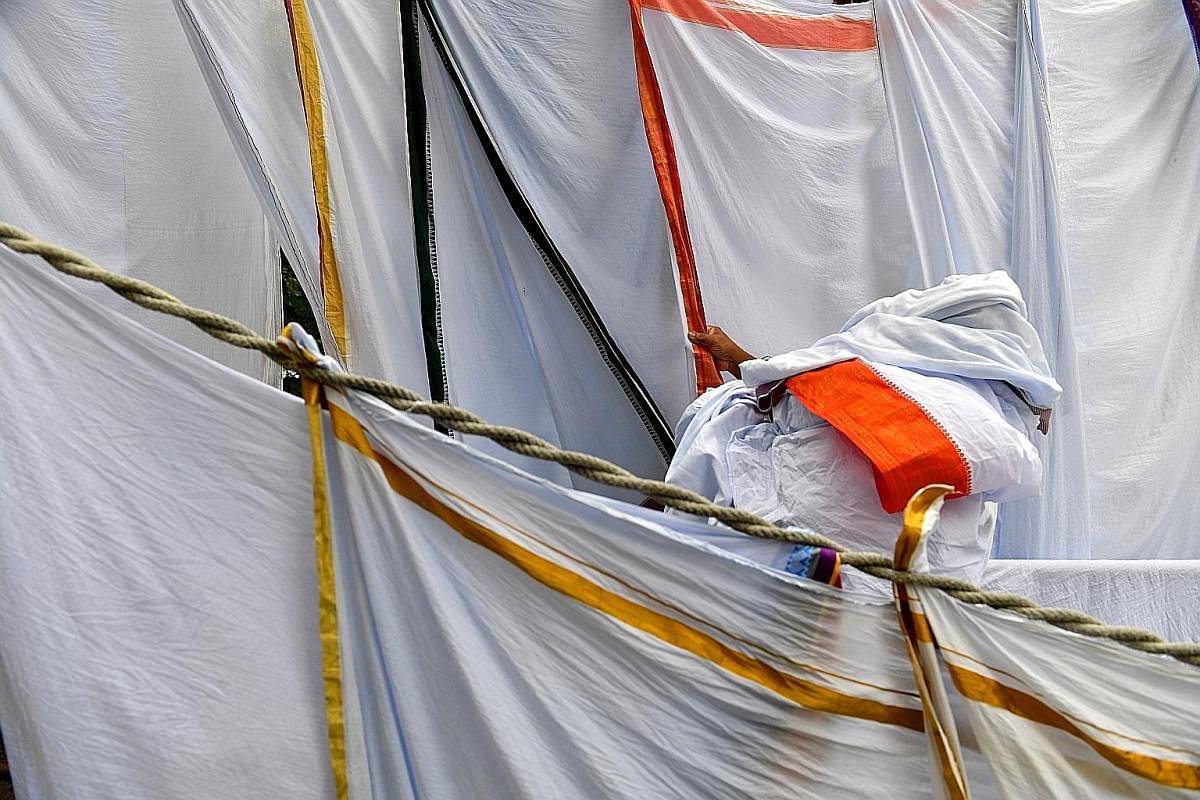
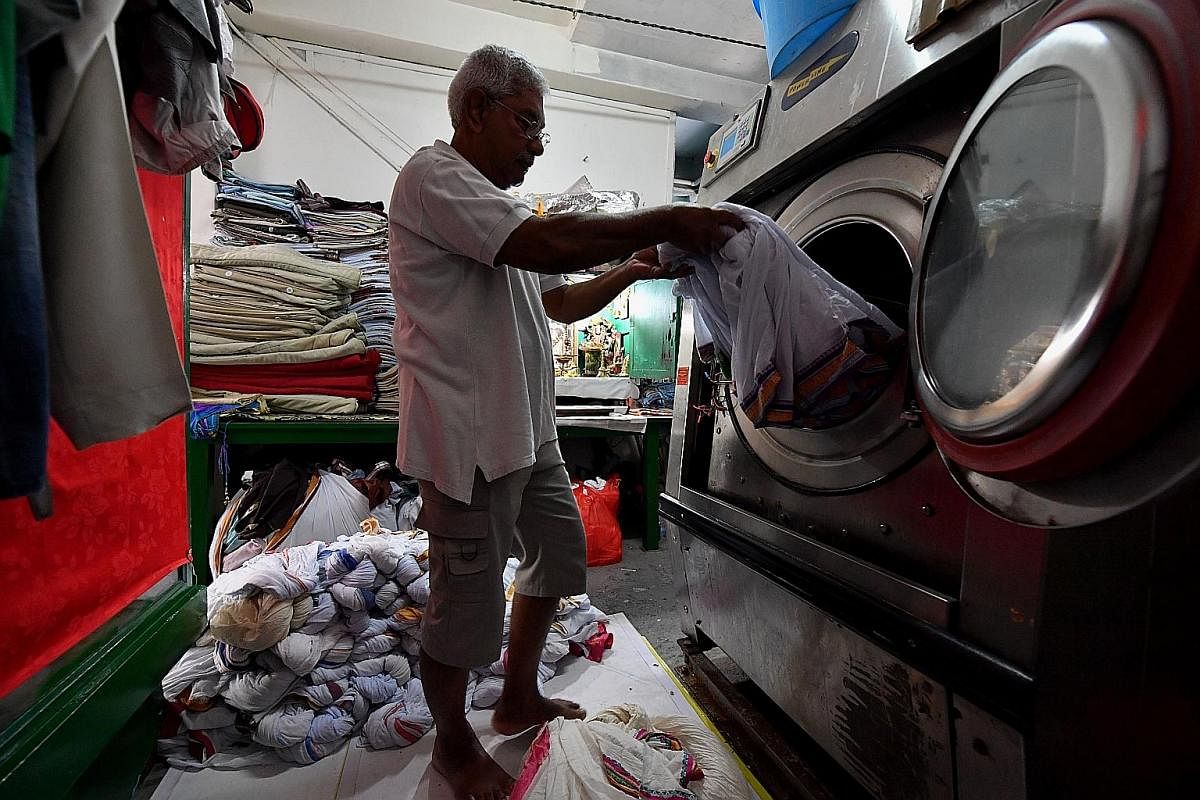
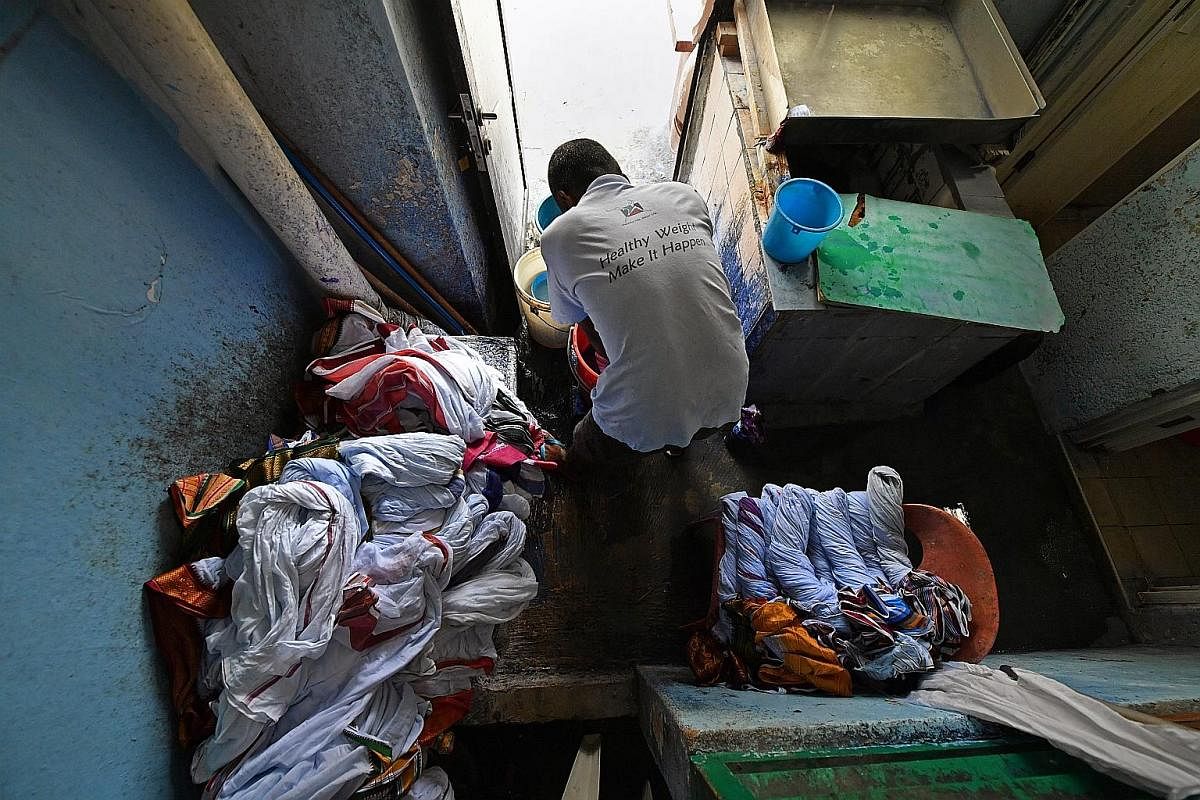
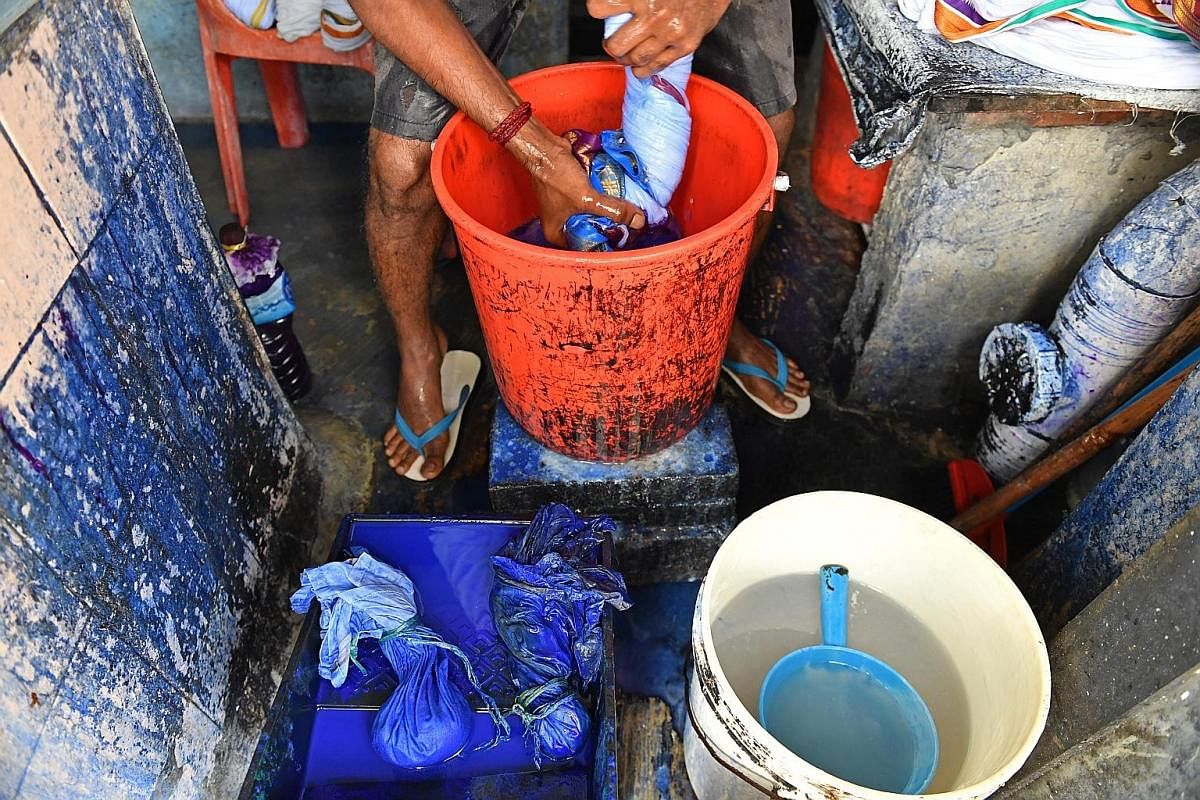
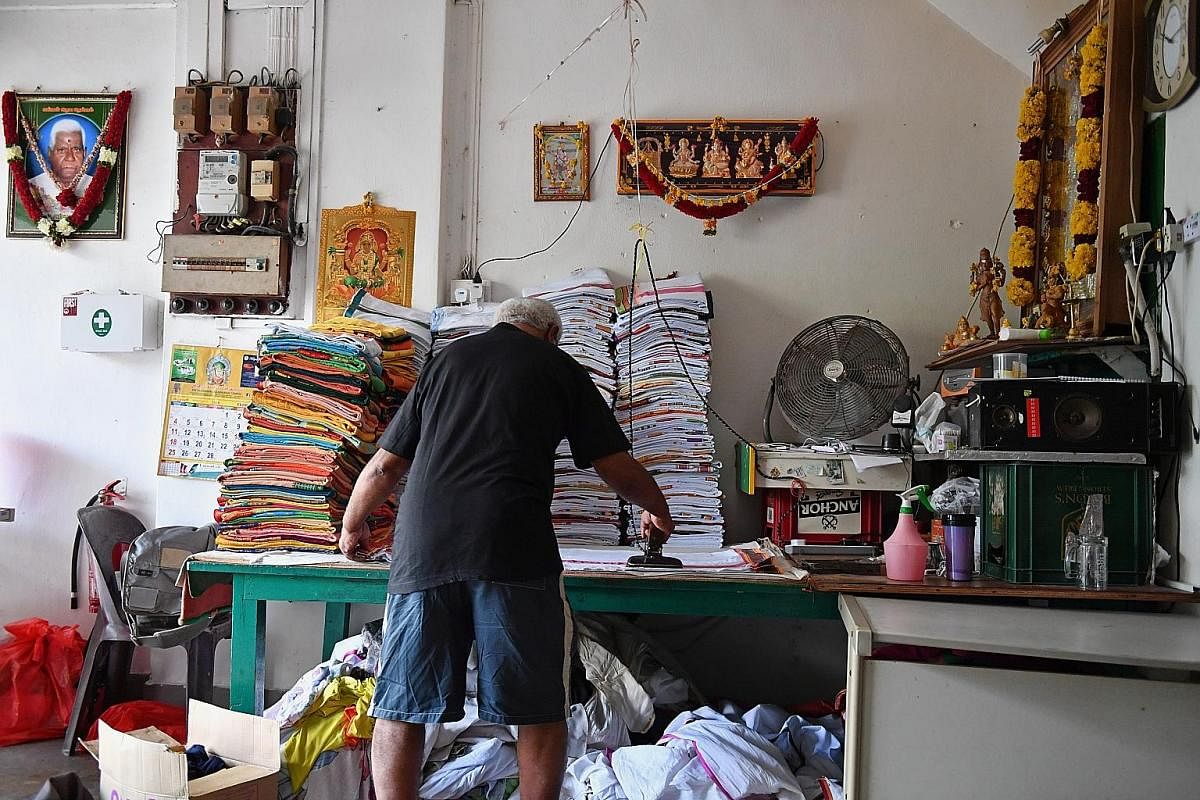
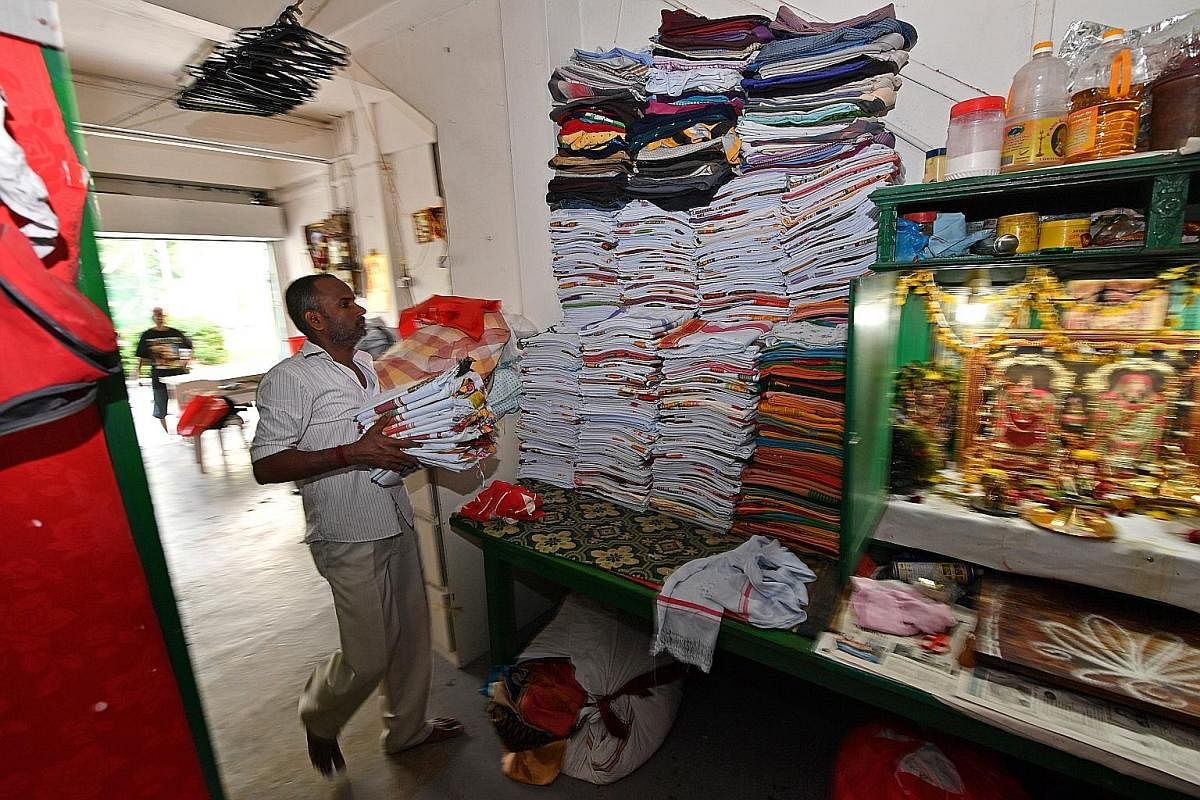
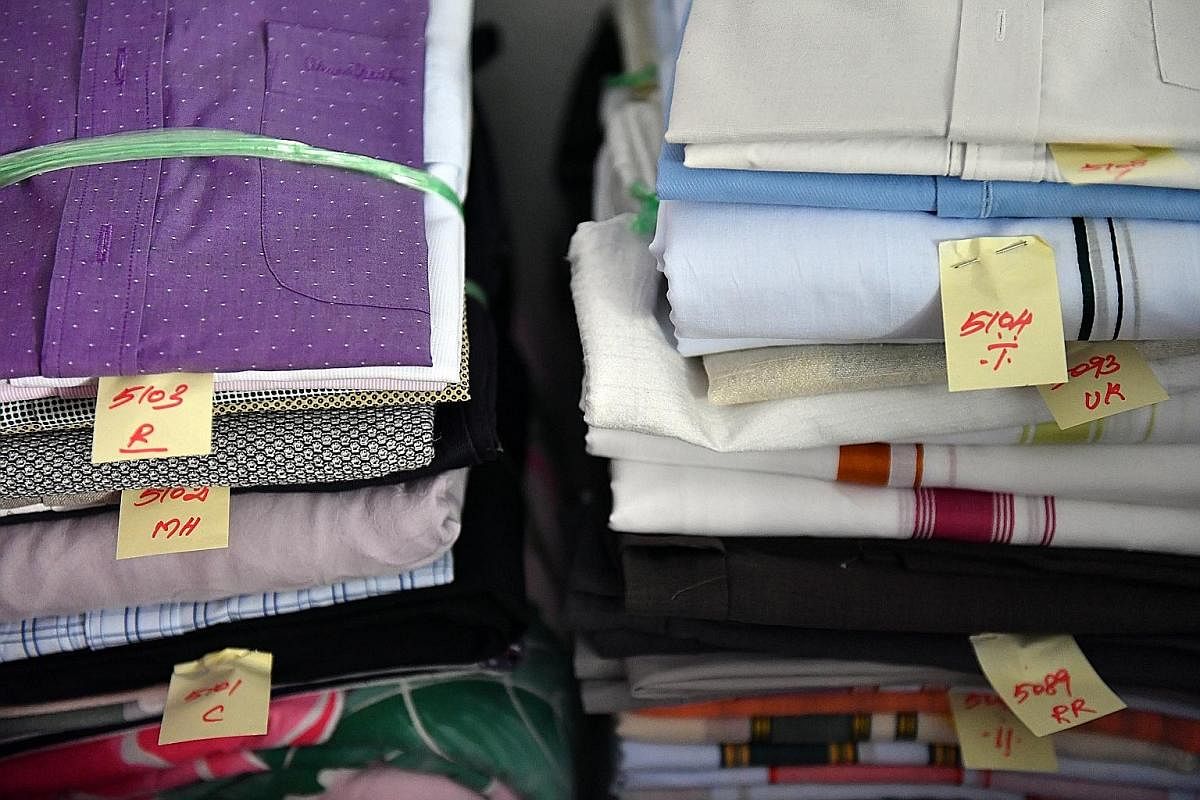
A little nostalgia lingers in Bendemeer.
Dhobis have all but vanished in Singapore save for P. Suppiah Laundry shop.
Standing at the corner of a Housing Board block in St George's Road, the P. Suppiah Laundry shop has been around for 50 years and still uses the traditional method of washing dhotis and saris although regular clothes are put into an industrial washing machine and spinner.
The shop is run by Mr Ari Valakan, 54. He took over the business from his father, Mr Packiri Suppiah, who died two years ago at the age of 88.
Mr Suppiah, who arrived in Singapore just after the Japanese Occupation ended, learnt his trade in India. His first dhobi shop was in Exeter Road near Somerset. The business moved into its present premises in St George's Road 40 years ago from MacPherson.
Mr Valakan is currently in the south Indian state of Tamil Nadu for his eldest son's wedding celebrations. He has two sons and neither has any intention of continuing their father's business. It looks very likely that Mr Valakan's dhobi shop will be the last in Singapore.
There were known to be more than 30 dhobi shops in Singapore in their heyday in the 70s and 80s, according to Mr Sambasivam, 73, a friend of the Valakan family who works in the shop on an ad hoc basis.
The P. Suppiah Laundry shop currently services seven Hindu temples on a weekly basis. Clothing is collected and delivered within a week to the temples. Mr Suppiah used to deliver all the clothes on his bicycle but a van is used these days.
Tighter curbs on foreign workers and higher levies are two of the biggest challenges facing the business.
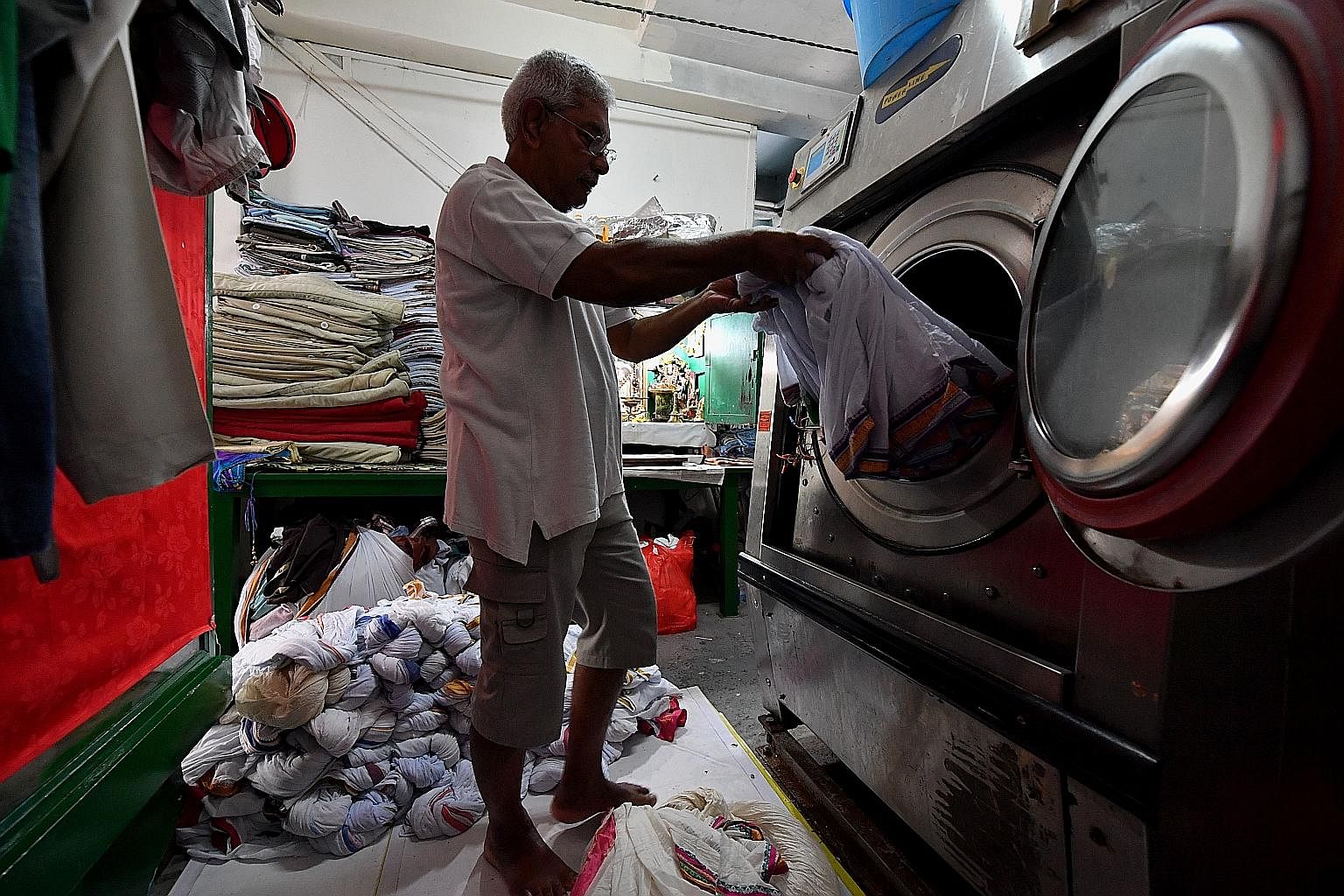
Another immediate problem for Mr Valakan is the constraint on the space available to hang and dry clothes.
For decades, the shop owners used to do this across St George's Lane on an open field, but the plot of land has been taken up by St George Towers, the soon-to-be-completed Build-To-Order flats.
A typical day in the dhobi shop starts with the washing of clothes in the morning, followed by starching and the applying of indigo dye which, among other things, prevents the yellowing of the fabric. The clothes are dried in the open and then ironed and folded. Finally they are tied up, stacked and tagged.
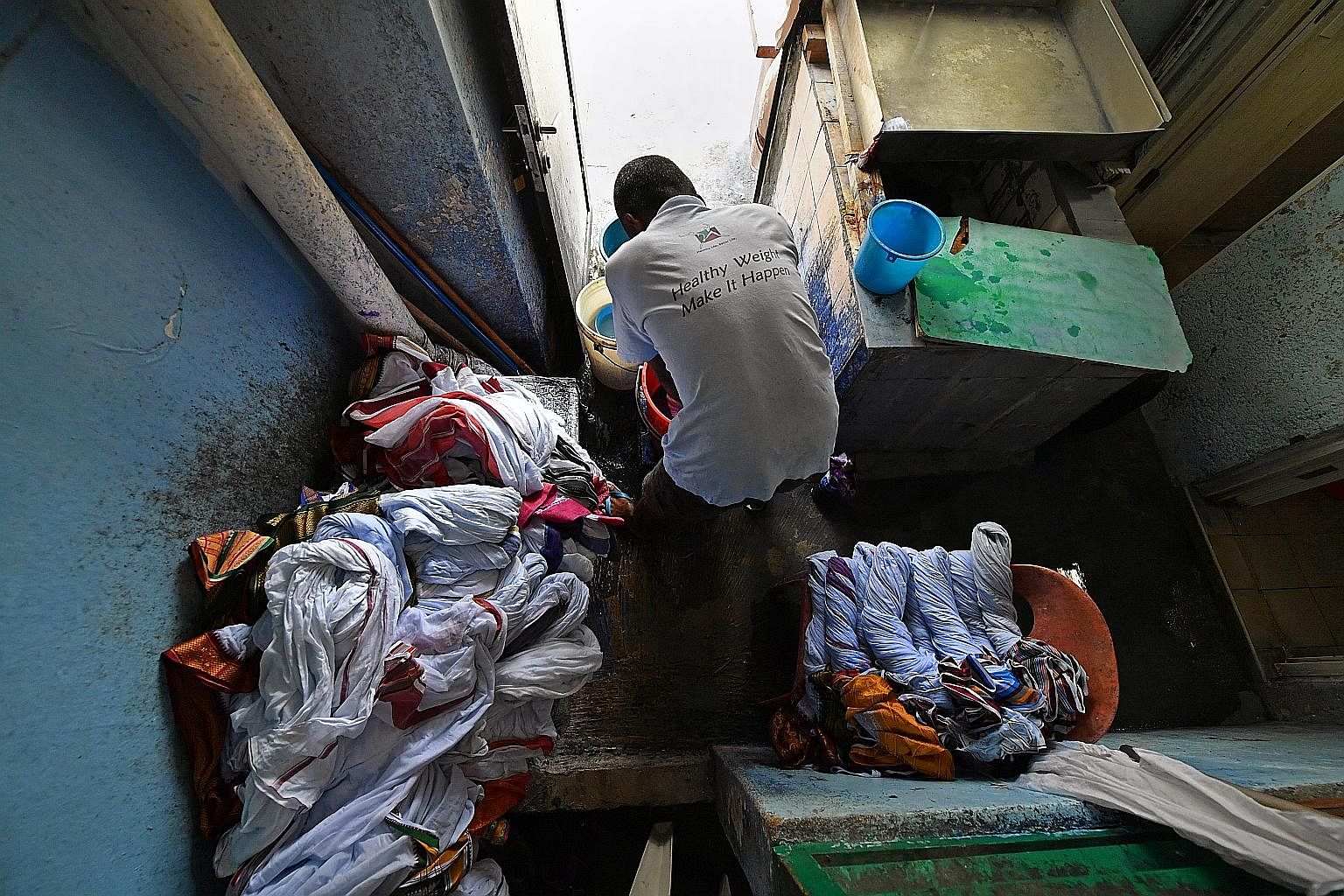
It costs $2.50 to wash and iron a shirt and the price has remained unchanged for five years. Mr Sambasivam said it can take up to 20 minutes to iron a sari. The cost of washing and ironing a sari is $4.
P. Suppiah Laundry opens daily except during Deepavali and Thaipusam.
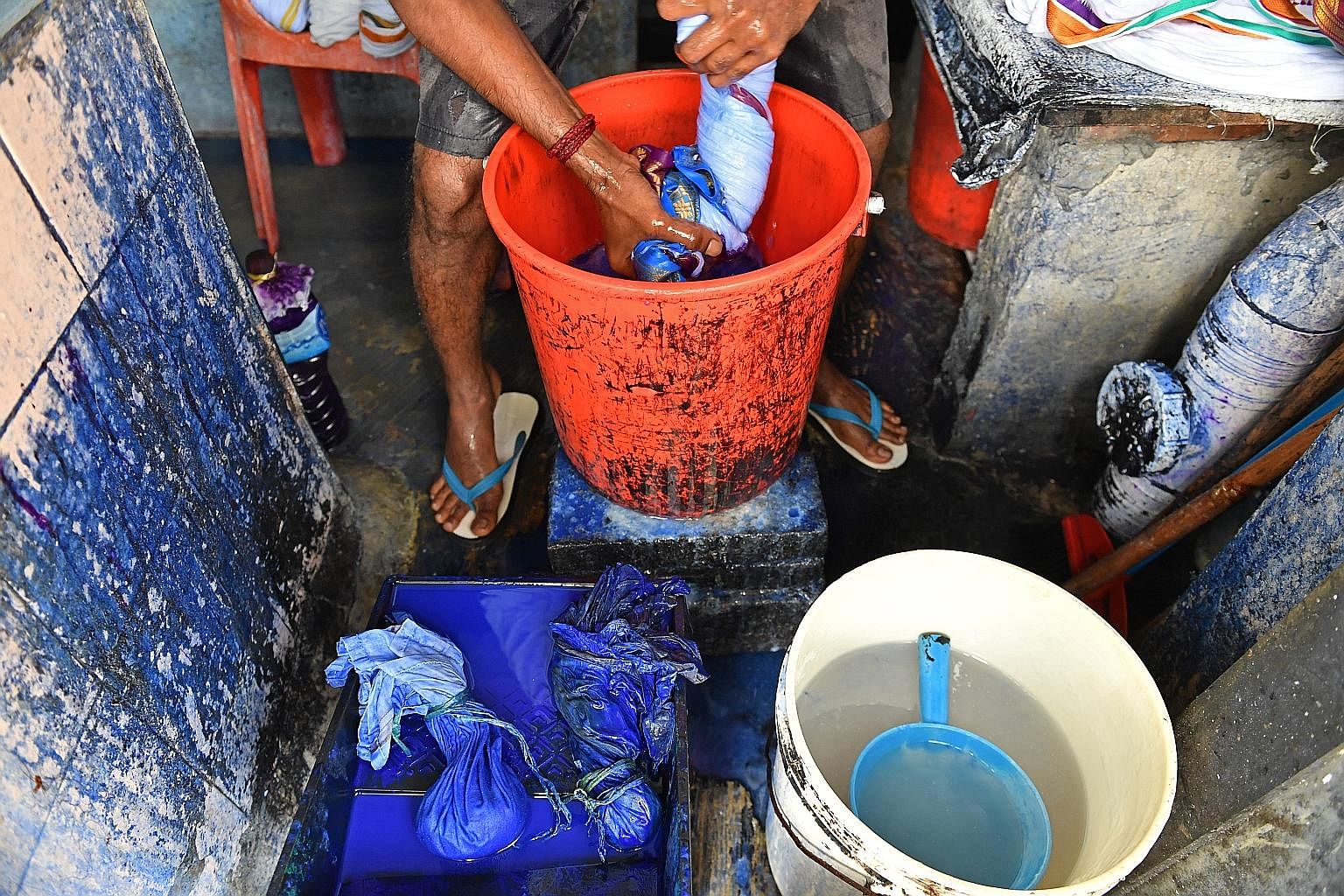
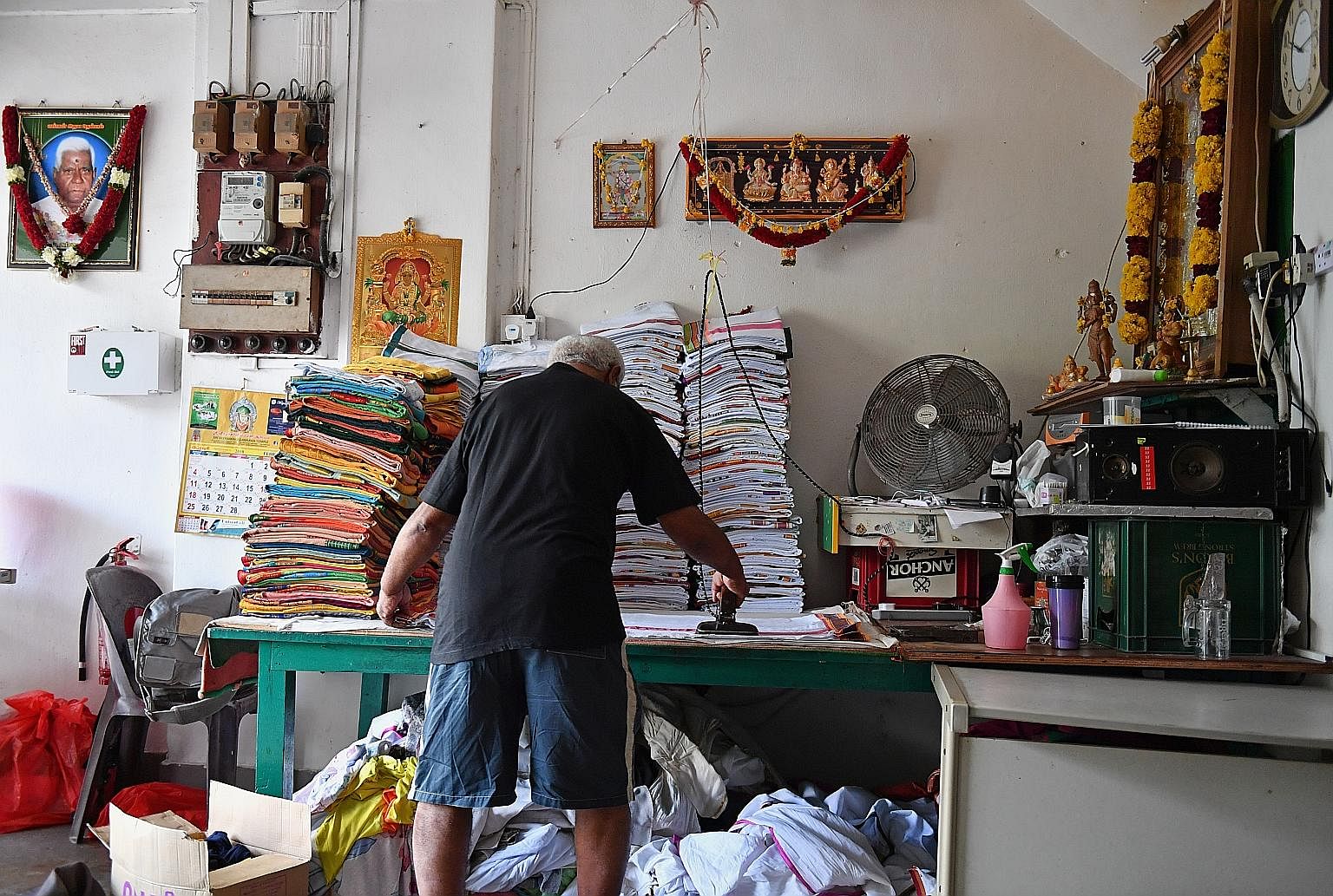
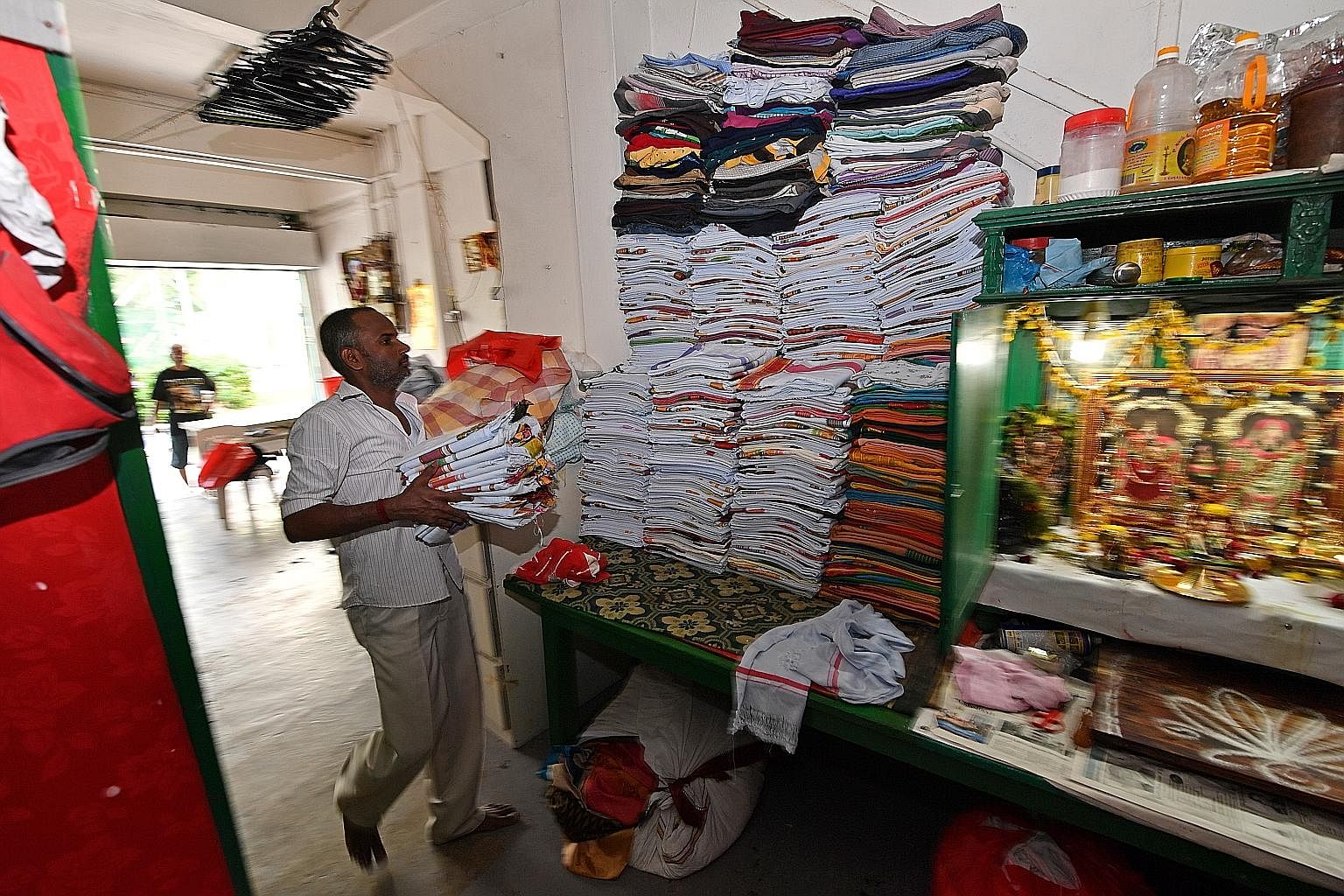
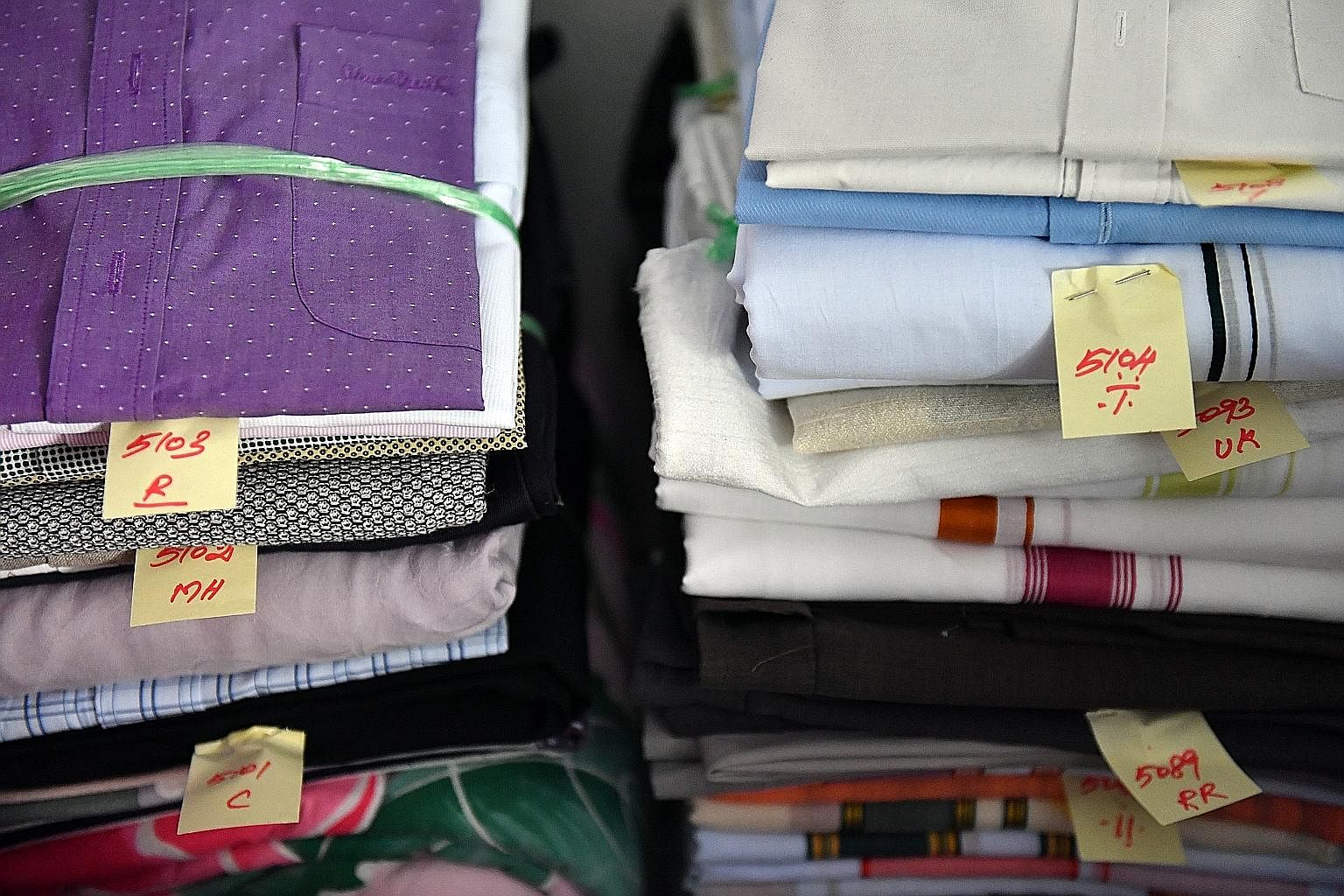
Join ST's WhatsApp Channel and get the latest news and must-reads.
A version of this article appeared in the print edition of The Straits Times on February 12, 2018, with the headline Last of the South Indian dhobis: Traditional washing method still used at Bendemeer laundry shop. Subscribe
